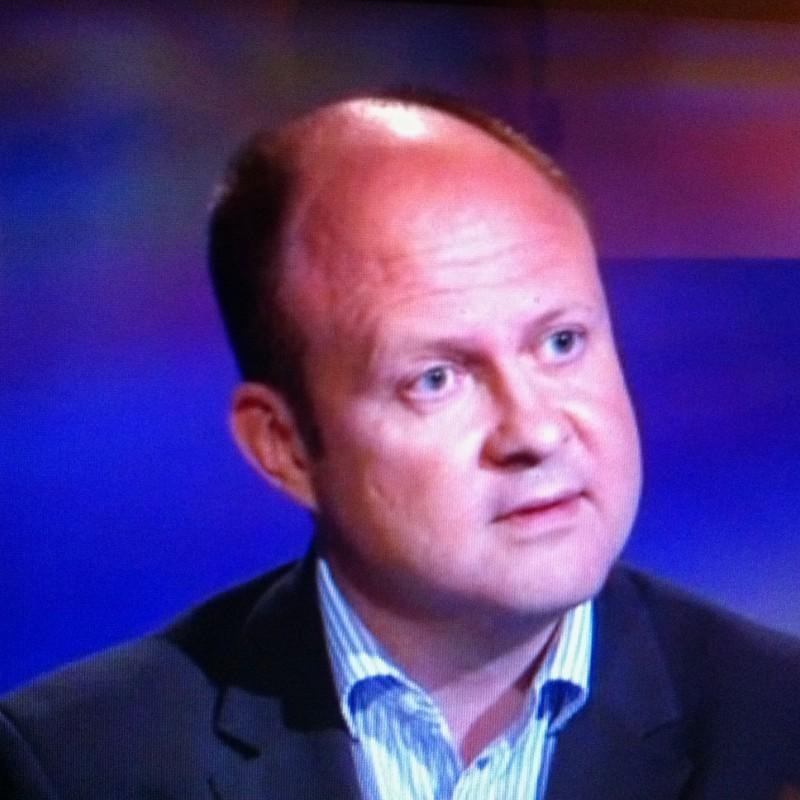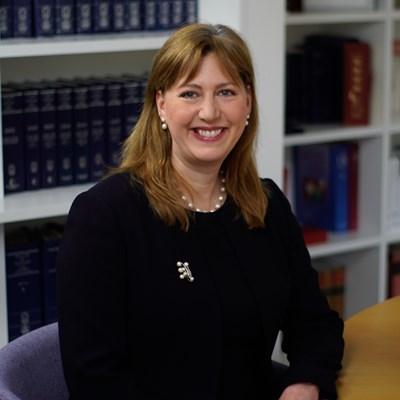The Scottish Government will publish its Legal Services Regulation Reform Bill sometime between now and June 2023. However the 2021 consultation on reform revealed striking differences of opinion on the way forward, particularly - though not exclusively - between practitioner and consumer interests. So how will the new Bill seek to deliver open, transparent regulation and enhanced accountability and consumer rights? How can this be balanced with concerns about avoiding political interference in the legal profession and legal services and perhaps higher costs to consumers? Most importantly what will this mean for the way the legal profession, legal practices and all those fall within the definition of legal services are scrutinised, regulated and held accountable in future?
The First Minister committed to the new Bill in launching the 2022/23 Programme for Government in Parliament on 6th September. The Bill is intended to ‘provide for a modern regulatory framework designed to promote competition and innovation while also improving the transparency and accountability of legal services regulation and the legal complaints system in Scotland.’
Ministers have been complimentary about Scotland's legal services and practitioners, speaking of their value and importance. However they have also been explicit in their desire for reform. Ash Denham MSP, Minister for Community Safety in the Scottish Government has stated “...however improvements to the regulatory structure and delivery are needed to further support access to justice in modern Scotland. We want a modern, forward-looking legal services regulation framework for Scotland that will best promote competition, innovation and the public and consumer interest in an efficient, effective and independent legal sector.” So how far does the Scottish Government want to go in shaking up legal services regulation in Scotland?
The conference will discuss the implications of the Bill, what is needed in respect of regulatory reform and whether there is a way of meeting the broad consensus on concerns about the current system with consensus on the solutions to be implemented. How will this change in the regulation of legal services affect you and your work? What do you need to know to prepare for new regulatory processes and burdens which you may have to comply with? What is the timescale in which change could take place and what are the prospects for influencing the content and nature of the Bill as it makes its parliamentary passage?
This conference examines the core challenges - and perhaps opportunities - legal services regulation faces with the imminence of new legislation. The conference will focus on three broad themes:
Benefits of attending - themes to be covered
Who should attend
This conference will be relevant for everyone working in and closely with the field of legal services whether as legal practitioners, directors, owners or managers of legal entities, those involved in advocating and representing on behalf of consumers and all those more widely who may fall into a broader definition of legal services deliverers. It will be particularly relevant for those whose interests sit at the centre of the legal profession including practitioners under descriptions such as lawyers, solicitors, KCs, partners, associates and paralegals and all those who work with those practitioners.

Minister for Victims and Community Safety
Scottish Government

Co-Founder
Hook Tangaza

Founder and CEO
Inksters

Honorary Professor, Faculty of Laws
University College London

Chief Executive
Law Society of Scotland

Conference Chair

Chief Executive
Scottish Legal Complaints Commission

Executive Director of Regulation
Law Society of Scotland
09:05 Chair's opening remarks
Paul Sinclair, Conference Chair
Session 1: Where should the Bill take us?
09:10 Moving from review to reform
Professor Stephen Mayson, Honorary Professor - Faculty of Laws, University College London
StephenMayson
09:25 The impact of intended and unintended consequences
Diane McGiffen, Chief Executive, Law Society of Scotland
Lawscot
09:40 Question and answer session
09:55 Comfort break
10:00 Keynote speaker
Siobhian Brown MSP, Minister for Victims and Community Safety, Scottish Government
scotgov ScotGovJustice Siobhianayr
10:15 Question and answer session
10:30 Comfort break
Session 2: What does the Bill need to achieve and why?
10:45 On being ambitious in regulatory change
Brian Inkster, Founder and CEO, Inksters
inksters BrianInkster
11:00 'No great mischief in the regulatory system' - what change is proportionate?
Rachel Wood, Executive Director of Regulation, Law Society of Scotland
Lawscot
11:15 Question and answer session
11:30 Comfort break
Session 3: Broader perspectives on regulation, accountability, competition and consumer interests
11:45 Legal services and governance in a time of disruptive change
Alison Hook, Co-Founder, Hook Tangaza
HookTangaza alisonhook
12:00 A complaints practitioner's perspective
Neil Stevenson, Chief Executive, Scottish Legal Complaints Commission
slcccomplaints StevensonLaw
12:15 Question and answer session
12:30 Chair's closing remarks
Paul Sinclair, Conference Chair

Siobhian Brown MSP
Minister for Victims and Community Safety
Scottish Government
Born in London to Scottish parents, Siobhian Brown emigrated to Australia when she was four and was raised and educated in Sydney. On leaving school, she travelled the world, working in Spain, Italy and London, before settling in Scotland in 1999.
A former South Ayrshire councillor, Ms Brown was elected to the Scottish Parliament in 2021 as MSP for Ayr. Until her ministerial appointment, she served as Convener of the Covid-19 Recovery Committee.
Away from politics, she enjoys walking the Ayrshire coast with her husband, children and Ruby the dog.

Alison Hook
Co-Founder
Hook Tangaza
Alison is the co-founder of Hook Tangaza following the merger of Hook International and Tangaza Advisory Services in 2016. Alison leads on Hook Tangaza’s technical assistance, trade and regulatory work.
Before setting up Hook International in 2011, Alison was the Director of International at the Law Society of England and Wales where she played a leading role in advocating for more open legal markets and working with government to develop an export promotion strategy for UK legal services.
Earlier in her career, Alison worked for the European Commission, both in London and Brussels and for the Foreign and Commonwealth Office in London and Lagos. She graduated in economics from the University of Edinburgh and holds a Masters in Economics from Warwick University and an MBA from the Open University. In 2008, she was recognised in the Lawyer ‘Hot 100’.

Brian Inkster
Founder and CEO
Inksters
Brian Inkster is the founder and CEO of Inksters. He is a Solicitor and Notary Public.
Brian originally comes from Shetland where he still maintains strong business and personal links. He has lived in Glasgow since 1991 but travels regularly on business throughout Scotland and especially the Highlands and Islands. He has established offices for Inksters in Aberdeen, Edinburgh, Eigg, Forfar, Glasgow, Inverness, Lerwick, Portree, Thurso and Wick.
Brian was referred to as ‘a one man Scottish legal institution’ in the Recommended Law Firm Guide 2010.
He is an award winning lawyer including being named Solicitor of the Year in 2006 and Managing Partner of the Year in 2014.
Brian as a lawyer concentrates on property related work and specialises in particular in crofting law and the law of servitudes (easements).
Brian also has an active interest in entrepreneurship, marketing, technology and corporate social responsibility in relation to running a law firm. He is often asked to speak on these topics at conferences, summits and retreats.

Stephen Mayson (Professor)
Honorary Professor, Faculty of Laws
University College London
“Strategist, independent legal thought leader and advocate for social and organisational fairness, Professor Stephen Mayson helps organisations make difficult decisions in times of structural or industry change. Famed for his unique perspective and sense of justice, Stephen is valued most of all for his ability to guide his clients in the right direction.”
I have a long association with the legal world. My objective is to bring independence, insight, challenge and objectivity to the various contributions I make to organisations and the broader world of legal services. These include:
Non-executive
Serving as a non-executive director or trustee with a variety of plc, limited company, LLP, ABS and charitable bodies, bringing independent market knowledge and governance experience to these organisations.
My aim is to be a critical friend: offering appropriate challenge; supporting effective governance and decision-making; encouraging organisational integrity with strategy and markets, values, professional and ethical obligations, and attitude to risk.
Advisory
I work as both a retained and ad hoc strategic advisor for organisations in or connected to the legal sector. Clients include law firms, barristers’ chambers, patent and trademark attorneys, other providers of legal services (including licensed ABSs), corporate and government legal departments, regulators, and professional bodies.
My aim is to offer: facilitation and process for identifying and thinking through the relevant issues and options; challenge; market analysis and information.
Policy and regulation
I monitor and comment on developments in the legal services market, policy and regulation, ethics and training, and seek to engage with government, regulators, professional bodies, practitioners and others. In 2015, I chaired the review by the regulators of the Legal Services Act 2007 and related legislation to identify for the Ministry of Justice potential options for legislative change. I am also the former director of the Legal Services Institute (a charitable think-tank originally established by The College of Law).
I am currently leading an independent review of the regulation of legal services in England & Wales.
My mission is taking a public interest perspective on the regulation, development and education of an independent and effective legal services sector.
Conferences and commentary
I chair and speak at both public commercial and not-for-profit events, as well as private partnership and board meetings and away-days. I write for a variety of publications, and am often asked for comment in national and local news media.
My objective is always finding a new way of looking at familiar issues and pushing thinking into new territory.
Follow me on this blog or on Twitter @StephenMayson
Coach
I undertake a limited amount of business coaching for those in strategic leadership positions (in the law, the commercial world, the armed forces and public sector), working particularly with individuals who have reached, or are making a transition to, a very senior governance or leadership position within their organisations and who are facing business or personal issues that are strategic to their organisations.
My role is normally non-directive, that is, not offering advice but rather facilitating a client to reach his or her own resolutions through a structured conversation. However, the boundaries between coach and advisor, or between coach and ‘sounding board’, can be fluid and (with agreement) blended. My objective is to develop a secure relationship in which issues and goals can be explored, insights and options developed, thinking challenged, and next steps agreed, all in a constructive and enjoyable way.

Diane McGiffen
Chief Executive
Law Society of Scotland
Diane McGiffen has worked in a variety of roles at Audit Scotland since its creation. Since 2021, as Chief Operating Officer at Audit Scotland, she has led their strategy to be a world class organisation, supporting the Auditor General for Scotland, Board and Management Team. Diane's role focused on ensuring the Audit Scotland delivers effective and sustainable public audit in Scotland. Before this, Diane was Director of Corporate Services at Audit Scotland and has worked in urban regeneration, in local government and at the House of Commons. Diane has been a member of the Northern Ireland Audit Office audit committee and has undertaken part-time study on the retention of women workers in health and social care. Diane became Chief Executive of the Law Society of Scotland in January 2022.

Paul Sinclair
Conference Chair
Paul Sinclair has been a provider of senior level counsel, messaging and speechwriting to British Prime Ministers, Cabinet Ministers and CEOs. He is a former journalist with expertise in crisis management.

Neil Stevenson
Chief Executive
Scottish Legal Complaints Commission
Background
Neil's previous background combines significant experience of regulation and complaints, and of the Scottish legal services market.
Neil sat on the Council of the Advertising Standards Authority for six years, involved in both the governance of the organisation and in adjudication on complaints within the £20 billion UK advertising industry. He was the Senior Independent Director and Chair of their Audit and Risk Committee.
Prior to this he had been appointed by the Privy Council to sit on the General Dental Council, the regulatory and complaints body for 104,000 dental professionals in the UK. He served two four-year terms on the Board as well as chairing the Remuneration Committee.
Previously Neil worked with the Law Society of Scotland for 11 years, latterly as their Director of Representation and Professional Support. He has held several other Executive and Non-Executive Director roles in organisations and charities spanning the legal sector, healthcare, consultancy, and oil and gas.
He holds a Law degree from Edinburgh University and a Masters in Quality Management from Birmingham University.
Current appointments
Neil currently sits as a non-executive director on the Standards and Regulation Board of the Royal Institute of Chartered Surveyors. The Board sets the standards for over 130,000 members and candidates operating in the development and management of land, real estate, construction and infrastructure across more than 140 countries globally.
Neil is also Chair of Norton Park, a charity and social enterprise which owns property in Edinburgh and runs this as a business hub for charities (with around 20 tenants) and as a third sector conference centre. He is Chair of Albion Equity Ltd., a property ownership company which is part of the Norton Park group.

Rachel Wood
Executive Director of Regulation
Law Society of Scotland
Rachel joined the senior leadership team of the Law Society of Scotland as Executive Director of Regulation on 18 May 2020. Rachel is a qualified solicitor and has worked in private practice in Scotland for more than 25 years, initially as a Corporate solicitor before moving into risk and knowledge management. For the last 15 years she has held senior leadership positions in several firms, including as Director of Risk and Knowledge of a large Scottish firm. Rachel has also served on various Boards and was a volunteer on the Law Society of Scotland Education & Training Committee.
This conference will take place online.
How to book
You can book to attend, or order the video only, in 3 ways:
Conference fees
Group discount – organisations booking 3 or more delegates will receive every third delegate place free of charge (please complete further forms if necessary)
Payment
We do not currently accept payments online and will send you an invoice.
You have the option of paying by BACS or card.
BACS details will be included on the invoice.
If you wish to pay by card, please tick the appropriate box on the booking form and a member of our staff will contact you by telephone to take the payment. Alternatively you may call 0131 556 1500.
Terms and conditions
By placing this booking, you agree to the full terms and conditions found via the link at the foot of our website.
Book delegate places or purchase video recording.

